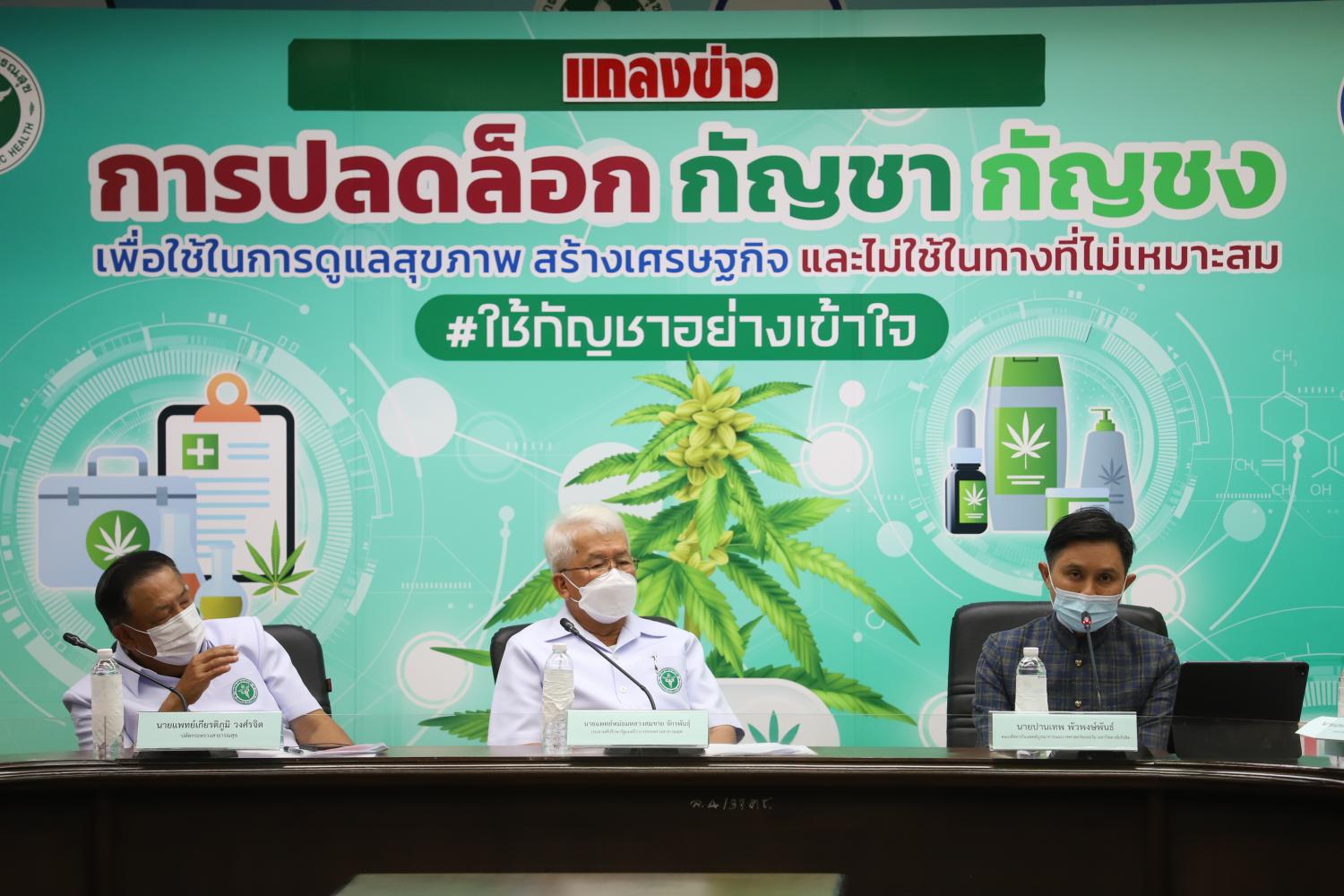
Starting on Thursday, people can grow cannabis plants at home, but the legalisation of cannabis has prompted concerns that it may lead to a rise in drug addiction.
Pol Gen Roy Ingkapairote, deputy commissioner of the national police and the director of the Narcotics Suppression Bureau (NSB), said police will not arrest anyone who smokes cannabis at home. But if they smoke it in public areas and cause a public disturbance, they can face charges, Pol Gen Roy said.
Cannabis will not be considered an illicit drug from today when a Ministry of Public Health announcement published in the Royal Gazette on Feb 9 takes effect. This means the production, import, export, distribution, consumption, and possession of cannabis will be formally legalised.
However, cannabis oil extracts that contain more than 0.2% of tetrahydrocannabinol (THC), the main psychoactive compound in cannabis, are categorised as a category 5 substance and regulated under laws pertaining to narcotics control and suppression.
More than 4,200 prisoners whose cases are cannabis-related will be released, Pol Gen Roy said. Cannabis cases pending investigation will also be dropped while any arrest warrants issued for cannabis use will be revoked, he said.
Regarding health concerns, the Ministry of Public Health is aware that the improper use of cannabis could lead to an increase in drug users, said Kiattiphum Wongrajit, the ministry's permanent secretary.
Some people might use cannabis excessively or mix it with other narcotic substances, he said. The ministry will set up a system to monitor those who may have mental problems caused by the wrong use of cannabis, he said.
"We will have a team of psychiatrists in every province to offer help. We will also set up another team to look into road accident cases that could be linked to cannabis use," Mr Kiattiphum said. "We do need to set up preventive measures against improper cannabis use," he said.
The ministry has also set up a cannabis communications committee chaired by the ministry's permanent secretary which will educate the public on how to correctly use cannabis for health or commercial reasons. The communications committee will not cover recreational use which could result in drug addiction, he said.

Cannabis is no longer categorised as a narcotic. People can plant it legally, but they need to inform local authorities about any cannabis plantation, he said. The cannabis and hemp bill, now before parliament, will ban the sale of cannabis to pregnant women and people under 20 years old.
Panthep Puapongpan, the cannabis communications committee spokesman, said that the chance of cannabis addiction is low, or about 8% when compared with cigarettes and alcoholic drinks. Mr Panthep said cannabis has more benefits than harmful effects, which is the reason why it has been taken off the narcotics list.
"Eating food with an excessive amount of cannabis is more dangerous than smoking cannabis," Mr Panthep said.
"It has side effects such as panic attacks, rapid heart beats and high blood pressure. But I am sure no restaurant will use it the wrong way as customers will not come back if they suffer any side-effects," he said. The committee will educate people on how to use cannabis correctly.
According to the Thai Food and Drug Administration (FDA), there are 1,181 herbal products and traditional medicine cures that use cannabis. The value of cannabis products could reach 15 billion baht in 2026.
Meanwhile on Wednesday, parliament passed the first reading of the cannabis and hemp bill with 373 votes in favour, seven against, and 23 abstentions.







